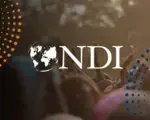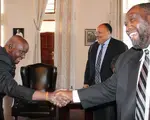Legislative
Displaying search results 681 - 690 of 5059

Presidential
Indonesia Presidential Election 2009

Presidential
Mauritania Presidential (First Round) Election 2009

Presidential
Kyrgyzstan Presidential Election 2009

Regional
Iraq (Kurdistan) Regional Election 2009

Presidential Runoff
Guinea-Bissau Presidential (Second Round) 2009

Local
Turkmenistan Local Election 2009

Press Release
NDI MOURNS THE PASSING OF DR. KEITH JENNINGS

Parliamentary
Moldova Parliamentary Election 2009

